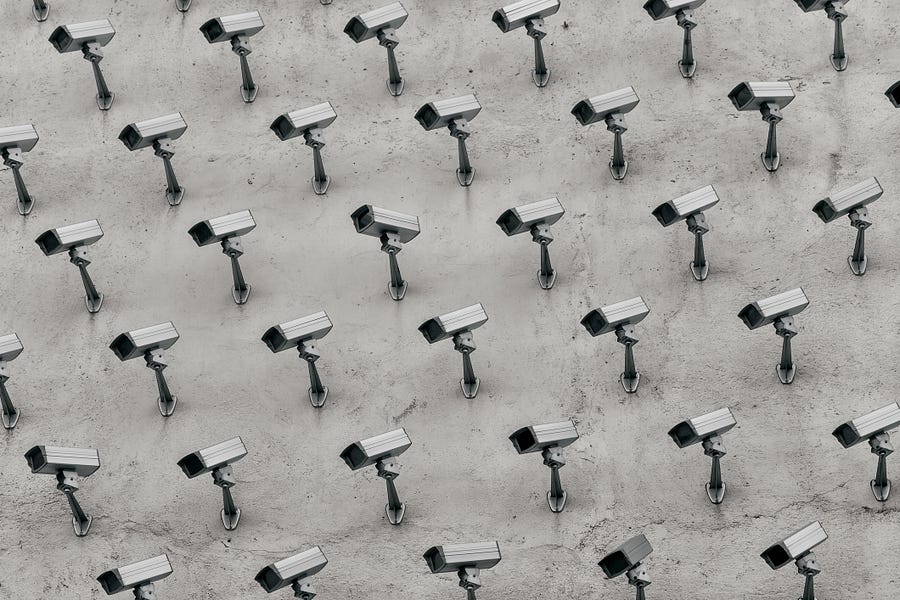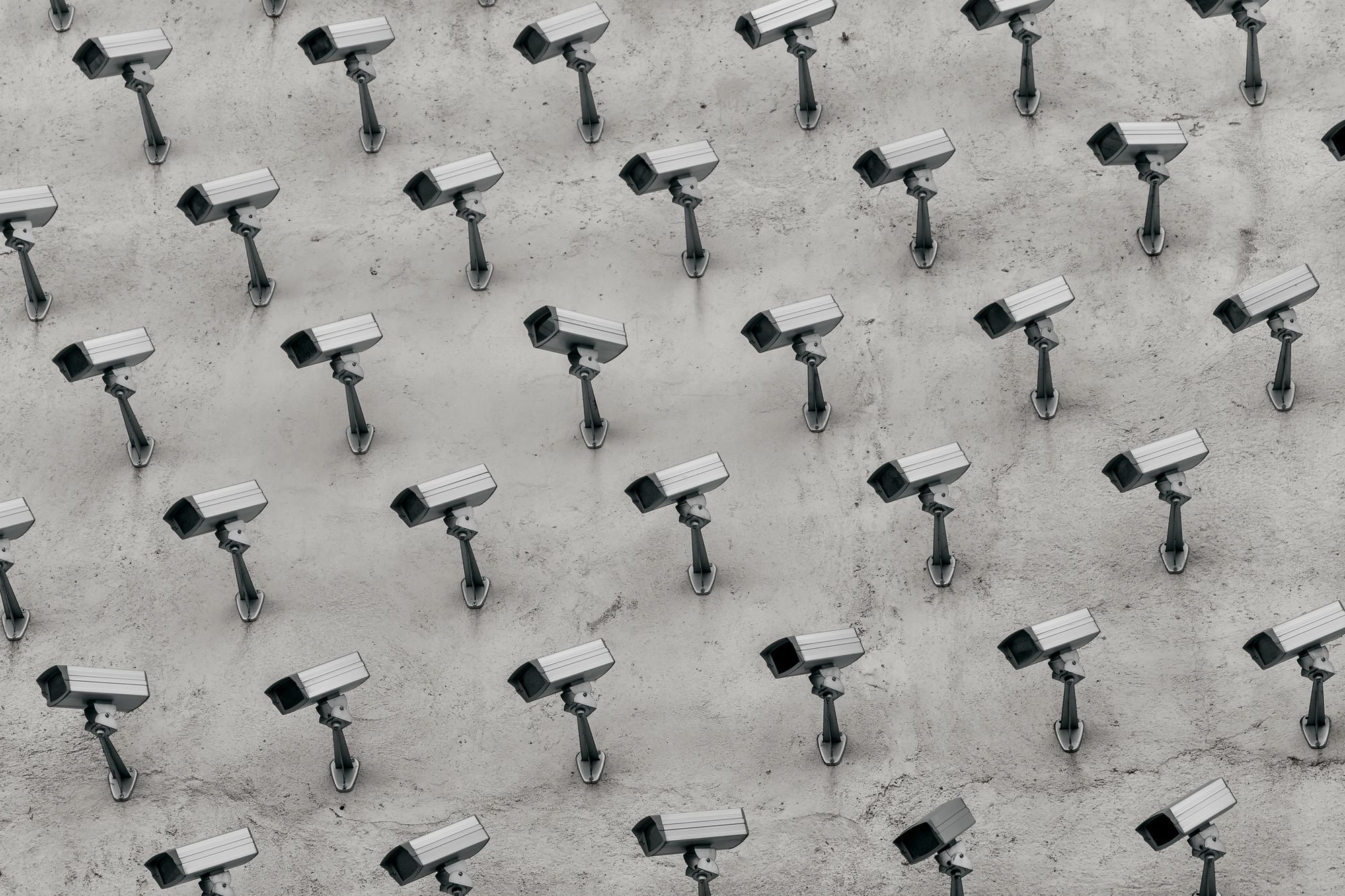Another War on Terror Ghoul Enters The Biden Administration
Ken Wainstein will run the intelligence shop at the Department of Homeland Security. They tried to make me to go to his rehab and I said no, no, no


Edited by Sam Thielman
THE DAY IS COMING when the Trump administration’s functionaries will be restored to respectability. It doesn’t take any great insight to see this inevitability. The latest reminder of it came on Friday, when the White House announced the nomination of Ken Wainstein to run the Department of Homeland Security’s Office of Intelligence and Analysis.
Wainstein is one of the War on Terror’s organization men. He was nothing like an architect of the Forever Wars; Wainstein was a few years late and a few tiers down. I didn’t see fit to include him in REIGN OF TERROR. But Wainstein was present at the near-creation, working in senior capacities for Bob Mueller’s FBI as it built an engine of persecution for American Muslims and then as U.S. attorney for D.C., one of the country’s premiere terrorism-prosecution jurisdictions.
Then Wainstein became the Department of Justice’s senior national-security official right in time for the most important legislative change on surveillance since the PATRIOT Act.
In December 2005, Jim Risen and Eric Lichtblau exposed one aspect of the NSA’s STELLAR WIND constellation of bulk surveillance programs, a digital dragnet whose scope and evolution it would take Ed Snowden to reveal. Risen and Lichtblau’s article prompted members of Congress to launch very belated attempts to restrain the surveillance, since it does not take a constitutional scholar to understand that the warrantless collection of Americans’ phone and internet data is one of the Big Things that America says in its terms of service that it won’t do. By the time 2007 began, it seemed like the boundary between the citizen and the state could again be up for grabs. Wainstein was one of the public faces of the Bush administration as it sought to defend the boundary—which, in practice, meant occupying new territory.
Unlike Dick Cheney, David Addington, or Mike Hayden, Wainstein and those like him in the Bush administration recognized that Congress was offering an opportunity rather than a hindrance, since they now had an opening to get Congress to ratify bulk surveillance. Wainstein, one of the faces of this effort, argued that restoring a basic requirement of individual suspicion of being an agent of a foreign power—the pre-9/11 threshold for national-security surveillance in the U.S. or on a U.S. entity—was too restrictive for a post-9/11 America.
Speaking on a 2007 conference call with reporters while fateful surveillance legislation was under negotiation, Wainstein worried: “If we do not get the approval of the FISA Court for one reason or another, that surveillance will go dark.” In reality, the secret court known as the FISA Court facilitates rather than restrains surveillance. As well, one of the administration’s most controversial proposals retroactively immunized telecoms from lawsuits seeking damages for the secret surveillance. In other words, Bush sought to protect telecoms from the public. “Just sort of a fundamental notion of fairness” required it, Wainstein explained to us reporters.
As I see from looking at a transcript of that call on Nexis—that means I can’t link to it, sorry, but it’s dated Oct. 10, 2007—it turns out I asked Wainstein about a distinction he drew between the FISA Court approving surveillance procedures (acceptable) and the FISA Court approving, like, surveillance (unacceptable). I didn’t frame this question well, but in my defense I was a 27-year old experiencing a depressive spiral in a basement apartment. At least I zeroed in on the important bit.
You’re reading a free post by Spencer Ackerman on FOREVER WARS, an independent outlet devoted to covering crimes of the state. We can’t make this work without support from our readers, and we want to keep on doing it as long as there are crimes to investigate (hence the title). Please consider signing up for a paid subscription using the button below.
OPERATOR: Our next question comes from Spencer Ackerman from talkingpointsmemo.com.
Q Hi, Ken. Thanks very much for this. Now, can you just go over the difference between the procedures that you spell out in the PAA [a temporary surveillance bill backed by Bush] for going to the court to make sure that you're doing everything right in terms of reasonably believing that a person who's targeted is overseas and isn't a U.S. person, versus what it says in the RESTORE bill [a Democratic alternative], because it seems to say that that -- what it's taking to the FISA Court is in fact a determination of your method. So it's a little hard to see what the distinction is that you're finding fault with here.
MR. WAINSTEIN: Under the PAA, as I said, what we can do is if we -- well, the -- under 105B of the PAA, the director of National Intelligence and attorney general have to certify a number of things before undertaking surveillance. One of the things is that there are procedures in place that reasonably determine that the target of surveillance is outside the United States.
Those procedures have to get drafted, signed, filed with the court. They were provided to Congress. And the court reviews them. We had -- under the PAA, we had 120 days given to the court, and the court had up to 180 days to review them. They're -- the procedures are filed, and the court was then to review those procedures and make sure that they did reasonably determine that the person's outside the United States. So that's what we had under the PAA.
Here, where this is not a matter -- "here" being under the RESTORE Act -- is not a matter of the court just reviewing the procedures by which we determine a person's outside the United States and therefore outside the jurisdiction of the FISA Court. Rather, this bill says that that surveillance would be within the jurisdiction of the FISA Court, and the FISA Court would have to approve it. We actually have to file an application for FISA Court approval for the surveillance. FISA -- it could be a programmatic application. But the FISA Court have to approve it, and if the FISA Court does not do so within 45 days, we have to go down. So that's the end of that surveillance.
Wainstein’s team got their way. The 2008 FISA Amendments Act, soon to be known as Section 702 of FISA, would require the Director of National Intelligence and the Attorney General only to certify before the FISA Court twice a year that the methods of surveillance under NSA approval “reasonably” meant that the dragnets primarily covered non-Americans. That is the closest thing to a warrant requirement contained within the most important surveillance law of the 21st century. It institutionalized a ton of surveillance abuse. That was the entire point.
And that was just what happened in public. In secret, around the same time, as I would learn and report years later thanks to Snowden, Wainstein was part of an effort to win internal administration approval for the NSA to expand its post-collection “contact chaining”—that is, analysis of who Johnny talks to; everyone they talk to; and so on—deeper into Americans’ internet records. On Nov. 27, 2007, about a month after our phone briefing, Wainstein wrote to Attorney General Michael Mukasey:
NSA believes that it is over-identifying numbers and addresses that belong to United States persons and that modifying its practice to chain through all telephone numbers and addresses, including those reasonably believed to be used by a United States person will yield valuable foreign intelligence information primarily concerning non-United States persons outside the United States.
Wainstein, like many of his colleagues in the second George W. Bush term, never lost respectability. You can find him in Security-State-relevant conference rooms and media. Sustained respectability ensured his path back to power. Of course it would be the Biden administration that granted it, since there’s nothing like a Never Trump Republican to ratify the credentials of a centrist Democrat in the eyes of a centrist Democrat.
But the Department of Homeland Security’s intelligence and analysis shop became a full-fledged instrument of consensus reality and repression under the Trump administration. Maybe the person in charge of it shouldn’t be someone experienced in providing wholesale Constitutional violations with the cover of law? Maybe doing so ensures that some administration down the line—perhaps even a Democratic one!—will restore to power some of the people that made the office an instrument of consensus reality and repression?
WHILE WE’RE AT IT, it’s hard not to notice the Washington Post casually giving Keith Alexander, the former NSA director, a forum to discuss cybersecurity as if he wasn’t a serial Constitutional (and cybersecurity!) violator. Alexander cashed in on his NSA experience and now sits on the board of Amazon, whose potentate just so happens to own the Washington Post. Like Pup said, how about some goddamn subtlety for a change?
HEY, DON’T FORGET! I’m going to be talking with Suzanne Schneider and Asad Dandia about Schneider’s excellent The Apocalypse and The End of History tonight at 7pm ET, via Zoom, thanks to the Brooklyn Public Library. We’re just going to have a freewheeling conversation, as all of us want to riff rather than be burdened by structure. You can sign up here.
And since I don’t know if I’m getting another edition of this out before Thursday, on Thursday at 4pm ET I will be live and direct at UPenn in Philadelphia to talk REIGN OF TERROR. That’s going to be livestreamed as well. Say hi if you’re around!

